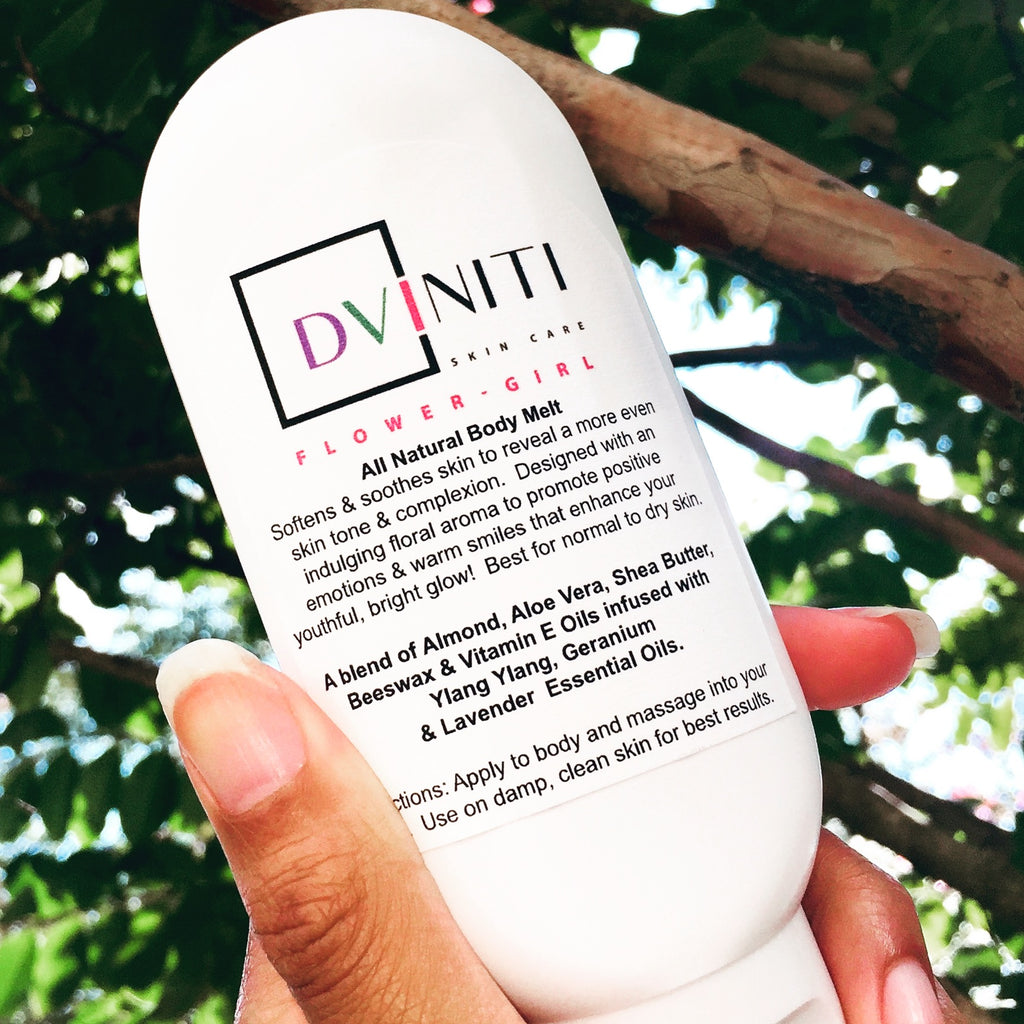Nature delivers long term benefits to enhance your features when used in skin/beauty care routines.
Posted on Thursday, September 13 2018 10:43:00 AM in News by Moriah C.
What’s in YOUR Skincare?
What products do you use in your daily skin care and beauty care routines? Dimethicone? Petrolatum? Cetyl Alcohol? DMDM Hydantoin? What about behentrimonium methylsulfate, polysorbate-60, steramidopropyl PG-dimonium chloride, methylparaben or potassium hydroxide? Most consumers identify their beauty care products by a brand name and would answer by saying Dove, Mac Cosmetics or Fenty Beauty for example. Very few consumers take the time to understand the individual ingredients that make up beauty care formulas; even fewer do research to determine if the ingredients are toxic, harmful and/or allergenic. Beauty care is perceived as being magical and fanciful – most don’t realize the complex chemistry involved to develop synthetic based beauty care products. The majority have limited knowledge of the impact of daily use. If one were to read the ingredients listing of their products, the above chemicals (and a plethora of other ones) could be found. Many consumers cannot pronounce the ingredients let alone understand their functions. Convincing marketing tactics are beautifully cloaked in brightly colored packaging, beauty claims and celebrity ads. Granted, not all chemicals and products are necessarily “bad” for you. (Cetyl alcohol is a wax found in skin care and can help to thicken, whiten and stabilize lotions.) However, considering the level of intimate skin contact when using beauty/skin care products, how could one benefit from discerning the good chemicals from the bad ones? What health, wellness and aesthetic benefits would we reap?
Breaking down the ingredients is the first step to understanding skincare and what works best for you. One can learn to appreciate natural skincare products because the chemistry is oftentimes less complex. Grapeseed oil is a natural astringent that can tone and moisturize oily, sensitive, acne prone skin without a greasy, heavy feel and won’t clog facial pores. On the other hand, DMDM hydantoin (a non-natural ingredient) is an antimicrobial formaldehyde releaser used as a preservative in skin care formulas. People exposed to such formaldehyde-releasing ingredients may develop a formaldehyde allergy. Oftentimes, there is less to explain when breaking down natural products, as is evident here.
Although seemingly more expensive than most lotions and creams on the market, natural skincare products are becoming more prominent. Many natural brands manufacture small batches and provide highly specialized products to niche markets. By 2024, the North American natural skincare market is expected to be worth $18 billion. Yet, compared to the North American mainstream skincare market, which will be worth $187 billion by 2024, natural care will still lag in terms of consumption. Natural is defined as something produced by and found in nature. Demand for natural products is slowly increasing as consumers seek healthier, less toxic beauty care options. Lotions, creams, and beauty products penetrate your skin thru the stratum corneum layer. This layer of skin is the outermost layer and has the most protective barriers to help guard the skin from the external environment. Skin responds to what you “feed” it. About 60% of things that contact the skin is absorbed and can travel through the body. Ingredients found in nature are easily absorbed through the skin to give moisture and nourishment. Humans have coevolved with plants and our bodies recognize, breakdown and respond well to natural products. Synthetic chemicals created for skin care are also absorbed by the skin but are not readily recognized by the body and may cause the skin to react negatively in attempt to expel the foreign substances. Some of the synthetic chemicals can cause irritation, redness, and acne. In some cases, synthetic chemicals are not readily excreted and can bioaccumulate in the body and build up in the lymph nodes and liver. Unknown complications, both short-term and long-term can result without any guarantee of the beauty benefit that was originally sought after.
Aroma is another highly influential factor that determine whether a product is purchased by the consumer. The human sense of smell is incredibly sensitive. Consumers can be induced to buy a product based on the scent alone. Legally, finished goods companies are not required to list the specific name of or list the individual components of a fragrance used. Have you ever questioned what the “fragrance” was when listed in a product? “Fragrance” can be listed and considered as a chemical in the product as one whole unit, even if the formula for the fragrance is made up of many different ingredients. According to EWG Skin Deep (an online database for chemicals), the chemical “fragrance” is extremely hazardous and should be avoided whenever possible. According to EWG, the chemicals mixed together to develop “fragrance” can be very complex, highly potent and can cause allergies, respiratory problems, and even reproductive organ issues. Fortunately, nature provides ways to enhance the aroma of skin care products using plant essences. In the DVINITI Skin Care formula, Flower Girl, floral ingredients such as ylang-ylang, geranium and lavender essential oils are used to create a light, natural fragrance, condition the skin and help to soothe the senses.
Slow and steady wins the race:
In this fast-paced era, consumers want products that will provide immediate gratification. Natural skincare may not guarantee results overnight, however, with consistent use, your body will reward you with consistent stable skin health and appearance. Demand for products to deliver immediate results may pose higher risk to consumer health with high loads of synthetic chemicals that when absorbed can have consequences that are unknown and difficult to trace.
With natural skincare options and more intuitive ingredient listings, one can feel reassured that the products will not compromise their health even if results take a little more time to show results. DVINITI Skin Care provides all-natural care and can customize options to meet your needs and preferences. The DVINITI Skin Care mission to INFORM EMPOWER CREATE is a unique way DVINITI engages with consumers to understand their preference while taking the time to educate consumers on chemical safety and awareness. By designing and creating customized skin care DVINITI helps consumers to feel confident with their beauty/skin care choices and helps to ensure results. Your skin is worth the time and effort it takes to get your skin care routine right and you deserve the best nature has to offer!
YOU CAN LEARN MORE ABOUT ALL-NATURAL SKIN CARE OPTIONS AT WWW.DVINITI.COM










